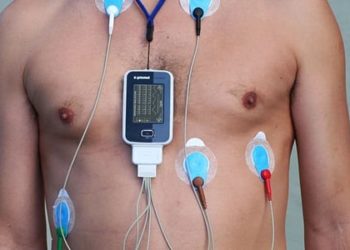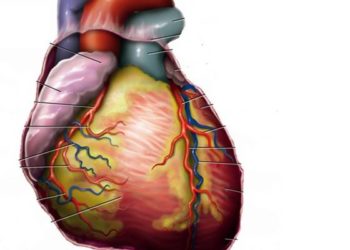Wellness Check: Mental Health
Internet gaming disorders may be associated with insomnia, paranoid ideation, and psychoticism
1. In this cross-sectional study, a higher internet gaming disorder (IGD) score was associated with increasing insomnia severity, paranoid ideation, and psychoticism.
2. However, insomnia severity fully mediated the association between IGDs and paranoid ideation, while cyberbullying partially mediated the association between IGDs and psychoticism.
Evidence Rating Level: 3 (Average)
Online gaming is a common form of recreation, and studies show that internet gaming disorders (IGDs) are highly prevalent in adolescents and young adults. Online gaming may be associated with insomnia and cyberbullying, which can precipitate psychotic experiences (PEs). However, the link between IGDs and PEs remains poorly understood, and the potential mediating factors in the relationship between IGDs and PEs, such as cyberbullying and insomnia, require further investigation. The present study aimed to evaluate the role of IGDs on PEs and the mediating impact of insomnia severity and cyberbullying on this relationship.
This cross-sectional study included 851 Tunisian university students who participated between February and May 2022. Participants were included if they were 18 years or older, were affiliated with a public Tunisian university, and had no history of psychosis or taking antipsychotic medication. Participants were excluded if they indicated a history of any diagnosed mental illness or if they did not complete the entire questionnaire. Participants completed a questionnaire regarding demographic information, the Internet Gaming Disorder-20 Test (IGD-20), the Brief Symptom Inventory (BSI), the Insomnia Severity Index (ISI), the Revised Cyber Bullying Inventory-II (RCBI-II), and the Depression, Anxiety, and Stress Scales (DASS-21). The primary outcome was the relationship between IGDs and PEs, as identified by the scores on the various self-report measurement instruments.
The results demonstrated that higher scores on the IGD-20 were associated with increasing insomnia severity and PEs, indicated by increased paranoid ideation and psychoticism. Insomnia severity fully mediated the association between IGDs and paranoid ideation, while cyberbullying partly mediated the association between IGDs and psychoticism. Furthermore, there was also an indirect relationship between IGDs and psychoticism, whereby higher IGD scores were associated with higher rates of cyberbullying, which was consequently associated with increased psychoticism. However, the study was limited by the self-reported nature of the study, which may have introduced social desirability bias. Nonetheless, the present study suggested that there is a clear link between IGDs and PEs, which is at least partially mediated by insomnia and cyberbullying.
1. In this cross-sectional study, the odds of adequate or optimal adherence to direct-acting oral anticoagulants were lower in atrial fibrillation (AF) patients with depression than those without.
2. However, AF patients with depression demonstrated no difference in adherence to warfarin compared to those without.
Evidence Rating Level: 3 (Average)
Depression is a highly prevalent mental health disorder and is quite common in patients with atrial fibrillation (AF). Depression is associated with reduced medication adherence in many diseases, and this may be a mechanism whereby AF patients with depression experience higher rates of adverse events than those without. However, the association between depression and adherence to oral anticoagulation treatment in AF is poorly understood. This study aimed to investigate the impact of depression on medication adherence in patients with AF.
This cross-sectional study included 101,041 individuals with AF who began treatment with direct-acting oral anticoagulants (DOACs) or warfarin between 2013 and 2019. Participants were included if they had at least one inpatient or two outpatient diagnoses of AF. Participants were excluded if sex was unknown, they lived in a long-term care facility, had a diagnosis of mitral valve stenosis, or had a CHADSVASc score <2. Data were obtained from a US administrative database of commercial and Medicare insurance and outpatient pharmacy claims and identified claims. Medication adherence was calculated as the proportion of days covered (PDC), with PDC ≥80% defined as adherent and ≥90% considered optimally adherent. The primary outcome was the difference in adherence between AF patients with and without depression.
The results demonstrated that AF patients with depression were significantly less likely to achieve adequate and optimal 12-month adherence to DOACs than those without. However, there was no association between depression and adherence to warfarin. Analyses of individual DOAC agents found that depression was associated with a decreased likelihood of adequate and optimal adherence to apixaban and rivaroxaban but not dabigatran and edoxaban. However, the study was limited by the use of PDC as a measurement of adherence, which does not necessarily reflect medication use. Nonetheless, the study suggested that depression may have a negative impact on DOAC adherence in patients with AF.
Anxiety may be linked to C3 and C4 levels in patients with systemic lupus erythematosus
1. In this cross-sectional study, there was a significant negative correlation between anxiety scores and C3 levels in patients with systemic lupus erythematosus (SLE), and a weak correlation between anxiety and C4 levels.
2. However, there was no statistically significant association between depressive symptoms and C3 or C4 levels.
Evidence Rating Level: 3 (Average)
Anxiety and depression are common mental illnesses that are often comorbid with chronic health conditions. Systemic lupus erythematosus (SLE) is an autoimmune condition that is characterized by chronic inflammation. Although depression and anxiety have been linked to SLE and other inflammatory conditions, the underlying cause of this association is unclear. Some have suggested that pro-inflammatory mediators, such as complement activation, such as C3 and C4, and hypothalamic-pituitary-adrenal axis dysfunction may be the underlying mechanism. The present study aimed to evaluate the relationship between SLE disease activity, C3 and C4 levels, and depression and anxiety in SLE patients.
This cross-sectional study included 120 SLE patients aged 18-60 from Cipto Mangunkusumo National Hospital in Indonesia. Participants were excluded if they had an acute infection that lasted more than a week, a chronic infection, such as HIV or pulmonary tuberculosis, steroid consumption greater than 40 mg prednisolone equivalent per day, or a history of neuropsychiatric SLE, psychopharmacology administration, or severe disease. The Hospital Anxiety and Depression Scale (HADS) was used to assess the degree of anxiety and depression, while the Mexican SLE Systemic Disease Activity (MEX SLEDAI) was used to assess SLE severity. C3 and C4 and other blood parameters were assessed via blood tests. The primary outcome was the association between MEX SLEDAI and HADS scores and complement levels.
The results demonstrated that there was a significant negative correlation between anxiety scores and C3 levels in SLE patients. There was also a correlation between anxiety and C4 levels, but this association was weak. There were no statistically significant associations between depressive symptoms and C3 or C4 levels or between anxiety or depressive symptoms and SLE disease activity. However, the study was limited by its cross-sectional nature, which limited its ability to determine causality or investigate long-term effects. Nonetheless, the study demonstrated a potential link between anxiety complement levels in patients with SLE.
Image: PD
©2023 2 Minute Medicine, Inc. All rights reserved. No works may be reproduced without expressed written consent from 2 Minute Medicine, Inc. Inquire about licensing here. No article should be construed as medical advice and is not intended as such by the authors or by 2 Minute Medicine, Inc.







